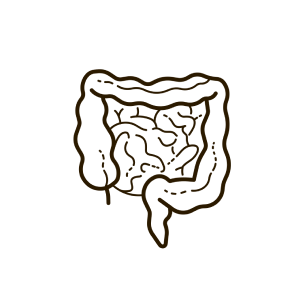Proton therapy to treat gastro-intestinal cancers
Data shows that proton therapy has great potential to increase therapeutic tolerance for patients with gastrointestinal tumors. It allows for lower toxicity to surrounding healthy tissues, less long-term side effects1 and a More aggressive radiation dose to the tumor target2. The possibility of decreasing radiation dose to organs at risk may also facilitate the compliance and intensification of systemic therapy such as chemotherapy, targeted therapy and immunotherapy3.

References
- Verma V, Lin SH, Simone CB, Mehta MP. Clinical outcomes and toxicities of proton radiotherapy for gastrointestinal neoplasms: a systematic review. Journal of gastrointestinal oncology. 2016 Aug;7(4):644.
- Welsh J, Gomez D, Palmer MB, Riley BA, Mayankkumar AV, Komaki R, Dong L, Zhu XR, Likhacheva A, Liao Z, Hofstetter WL. Intensity-modulated proton therapy further reduces normal tissue exposure during definitive therapy for locally advanced distal esophageal tumors: a dosimetric study. International Journal of Radiation Oncology* Biology* Physics. 2011 Dec 1;81(5):1336-42.
- Baumann BC, Mitra N, Harton JG, Xiao Y, Wojcieszynski AP, Gabriel PE, Zhong H, Geng H, Doucette A, Wei J, O'Dwyer PJ, Bekelman JE, Metz JM. Comparative Effectiveness of Proton vs Photon Therapy as Part of Concurrent Chemoradiotherapy for Locally Advanced Cancer. JAMA Oncol. 2020 Feb 1;6(2):237-246. doi: 10.1001/jamaoncol.2019.4889. PMID: 31876914; PMCID: PMC6990870.
Growing interest and implementation of proton therapy for gastro-intestinal cancers
Dr. John Plastaras points out that proton therapy is used as a routine standard of care in many gastro-intestinal cancers. “In particular, practitioners are concerned by the toxicity of radiation in the treatment of liver, pancreas, and esophagus cancers. They will use whatever tools to allow treatment without excessive side effects. Proton therapy is also used in select cases, such as ano-rectal cancers, cholangiocarcinomas, duodenal cancers, and gastric cancer.” He adds that reirradiation is another area where proton therapy is commonly used to treat recurrent gastro-intestinal cancers.

What they say about it
Frequently asked questions
In this website, we provide you with extensive literature and documents about PT research and indications. In particular, we've compiled a series of in-depth white papers exploring the various types of cancers for which proton therapy could be a viable first-choice option.
Proton therapy is indicated in an increasing number of types of tumors. To know more about proton therapy therapy's efficiency and indications, consult our pages on how to start a treatment and the different types of cancers in which oncologist choose proton therapy as a first-choice treatment.
Proton Therapy is indicated in an increasing number of types of tumors. As it minimizes...
